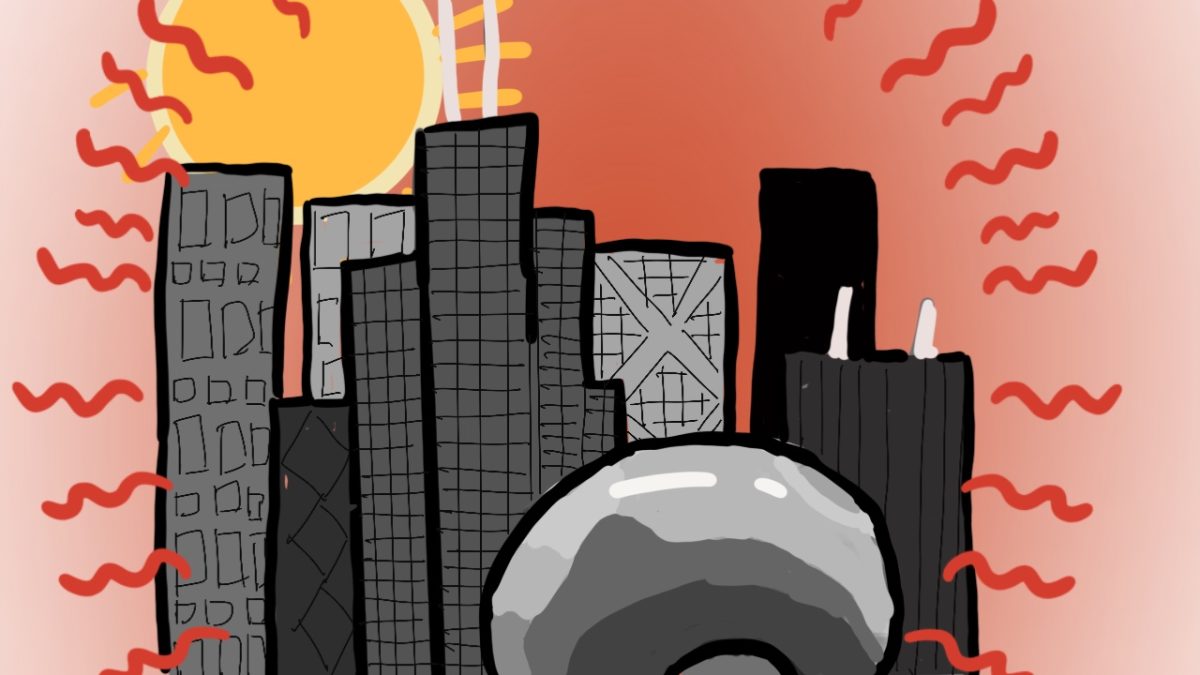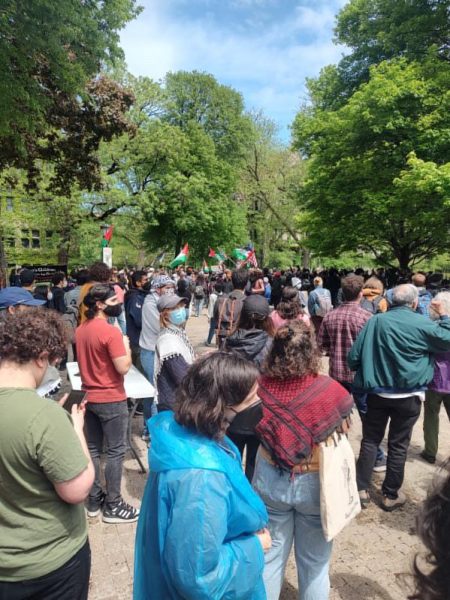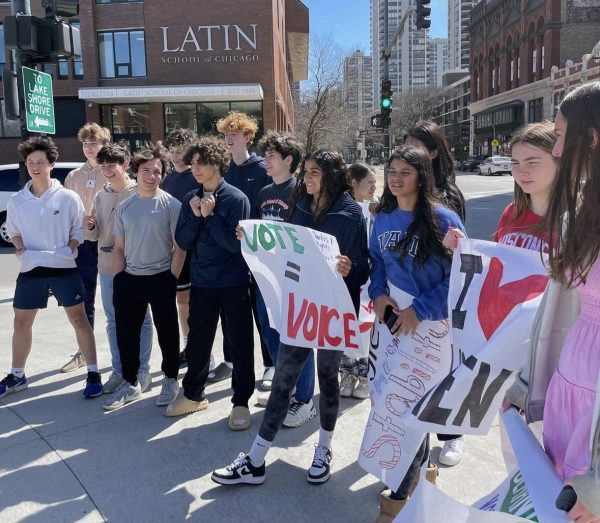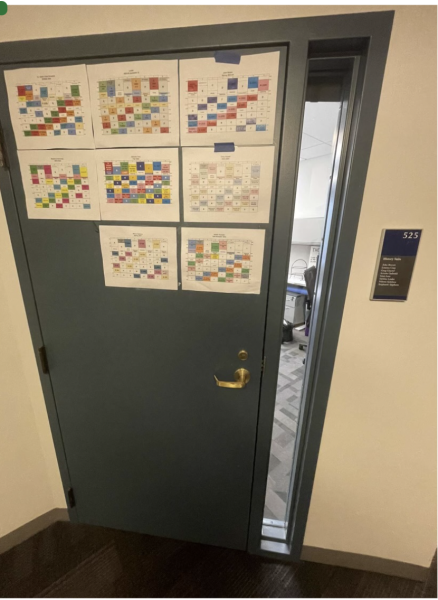Heat Waves: A Symptom of Climate Change in Chicago
This summer was an especially hot one for Chicago. With the heat index at O’Hare clocking in at 120 degrees Fahrenheit—a historic record high—a blanket of heat enveloped the whole city.
This reading broke the previous record from July 1995, when the heat index hit 118 degrees. The heat wave in 1995 resulted in more than 700 deaths, mainly among those who did not have access to air conditioning or could not afford to turn it on. According to the National Weather Service, heat-related deaths are one of the most common weather-related killers in the U.S.
These week-long heat waves are caused by a phenomenon called “heat domes,” where the high pressure of the Earth’s atmosphere pushes a large amount of hot air down, and when that air gets compressed, it continues to get hotter and hotter.
This particular event was part of a larger group of heat-related phenomena happening around the world, with occurrences like wildfires and heat waves becoming common news topics. Additionally, NASA named 2023 the hottest summer on record. In Arizona, for example, the daytime high temperatures in Phoenix did not drop under 110 degrees for 31 days.
Often, this dramatic weather is attributed to climate change, but climate change isn’t just about the appearance of one severe weather event; it’s more about the increasing frequencies of these events.
“We can never really say that that event is caused by climate change, because it’s just a single weather event,” Upper School biology teacher David Wisnieski said. “We have to look over long periods of time and see trends and averages, and I think in a lot of places we are seeing many more extreme events on average than we’ve seen in the past.”
As a Midwestern state, Illinois doesn’t have much to worry about when it comes to coastal flooding and hurricanes, but that doesn’t mean it’s exempt from the effects of climate change. Mr. Wisnieski said, “All the major cities have looked at what is projected for them and their area, and in Chicago, they’re thinking about possibly more precipitation events, temperatures are increasing, and winters possibly getting warmer.”
From coastal cities and flooding to increased numbers and severity of hurricanes and ocean acidification, many water-related issues come about with climate change. The effects of some of these problems are a loss of accessible freshwater when saltwater starts seeping into groundwater that is used for drinking.
In that way, Chicago does have one major plus—Lake Michigan. As a large body of freshwater, it gives Chicago security in its water supply. “I think we take the Great Lakes for granted, and the fact that we have such an amazing freshwater resource right here—many cities would be envious of that,” Mr. Wisnieski said. “Our water safety and security having that water is wonderful.”
Sophomore Luca Noventa noted some perks of living in Chicago when it comes to climate. “In Chicago, we’re more sheltered from climate change than a lot of places. We have a large body of water nearby to cool things down and also a lot of wind, which means the pollution doesn’t hang over the city. We are not along a coastline, so we don’t have to worry about rising sea levels as much.”
Not every place will have the geographical luck that Chicago has when it comes to climate change. In terms of damages, severe weather events can result in mass deaths, power outages, destruction of buildings, and loss of infrastructure. However, severe weather events hurt communities most on a personal level. Losing a family home or loved one, and the psychological trauma that these events can cause, is undeniably the worst part.
Nevertheless, the interconnectedness of the U.S. means that events in other places still affect all states. “I think the air quality showed that things from far away will impact us,” Mr. Wisnieski said. “We also have to remember that almost all of our food comes from the West Coast—California—and their water comes from the Rockies, so temperature and weather events and the overall climate of other areas are still going to have a huge effect on us.”
With Chicago issuing heat warnings and opening “cooling centers” around the city, the severity of these events is already apparent.
Senior Zoe Larsen felt the negative effects of the heat during her outdoor field hockey practices in the midst of the heat wave. “I felt really weak, really tired, and just wanted to take a nap,” Zoe said. “The next morning I woke up and felt so ill, getting chills, everything.” After she went to a second practice, she “got a 102-degree fever from just being outside,” and was bedridden the next day.
“The good thing was that this year, it was only a couple of days, so it was manageable for most people, but I think in terms of sports practices, you’re not going to want to completely stop doing that stuff,” Zoe said. “It’s really important to prioritize yourself during those conditions: hydrating, not pushing yourself too much in practices. I think it’s also on adults to realize that maybe this isn’t a safe environment to put kids in.”
This intense heat is just a precursor for what’s to come, and it reminds people of the importance of doing what they need to do to stay safe. A U.S. Environmental Protection Agency report on the anticipated impact of climate change on the state of Illinois warned, “Floods are becoming more frequent, and ice cover on the Great Lakes is forming later or melting sooner. In the coming decades, the state will have more extremely hot days, which may harm public health in urban areas and corn harvests in rural areas.”
Certainly, some of those predictions have, and will continue to, come true.

Morgan Sirek (‘26) is thrilled to be a part of The Forum this year. Morgan enjoys learning about and participation in Latin’s arts scene, and is looking...

















































